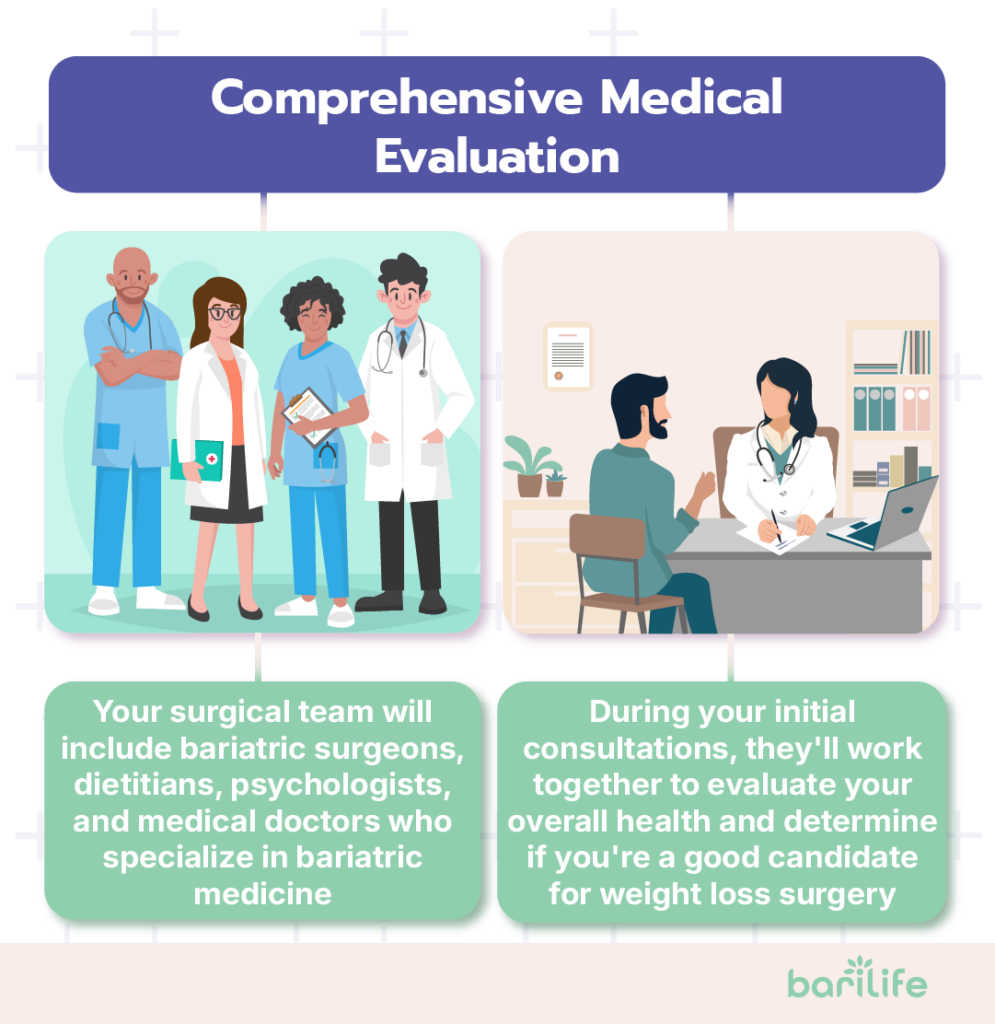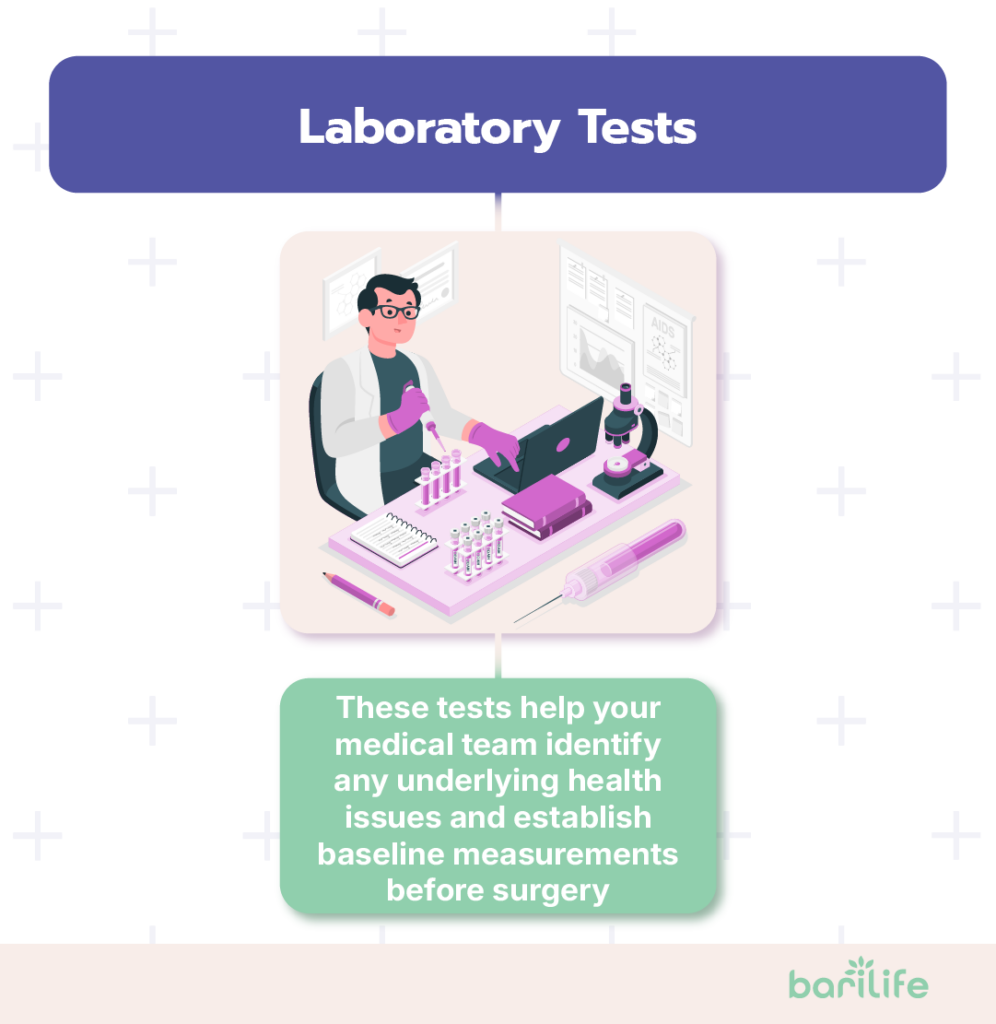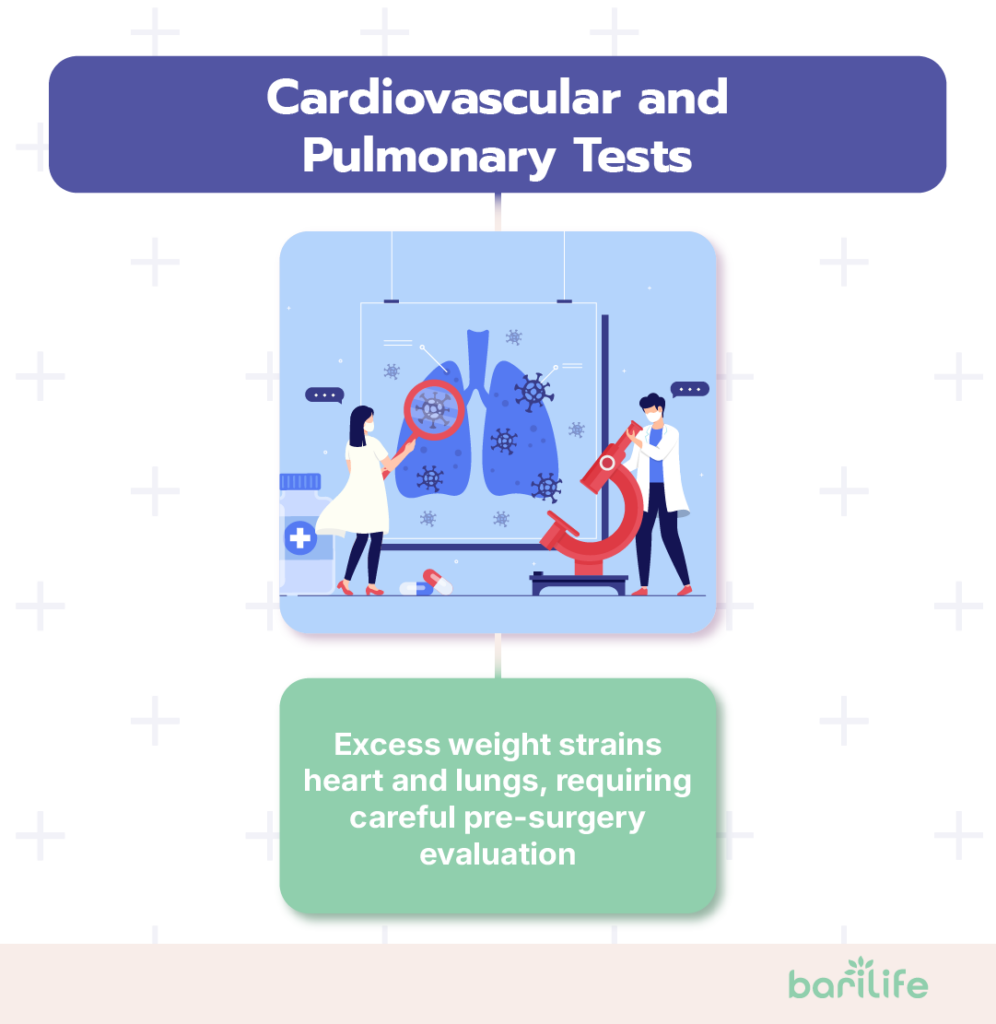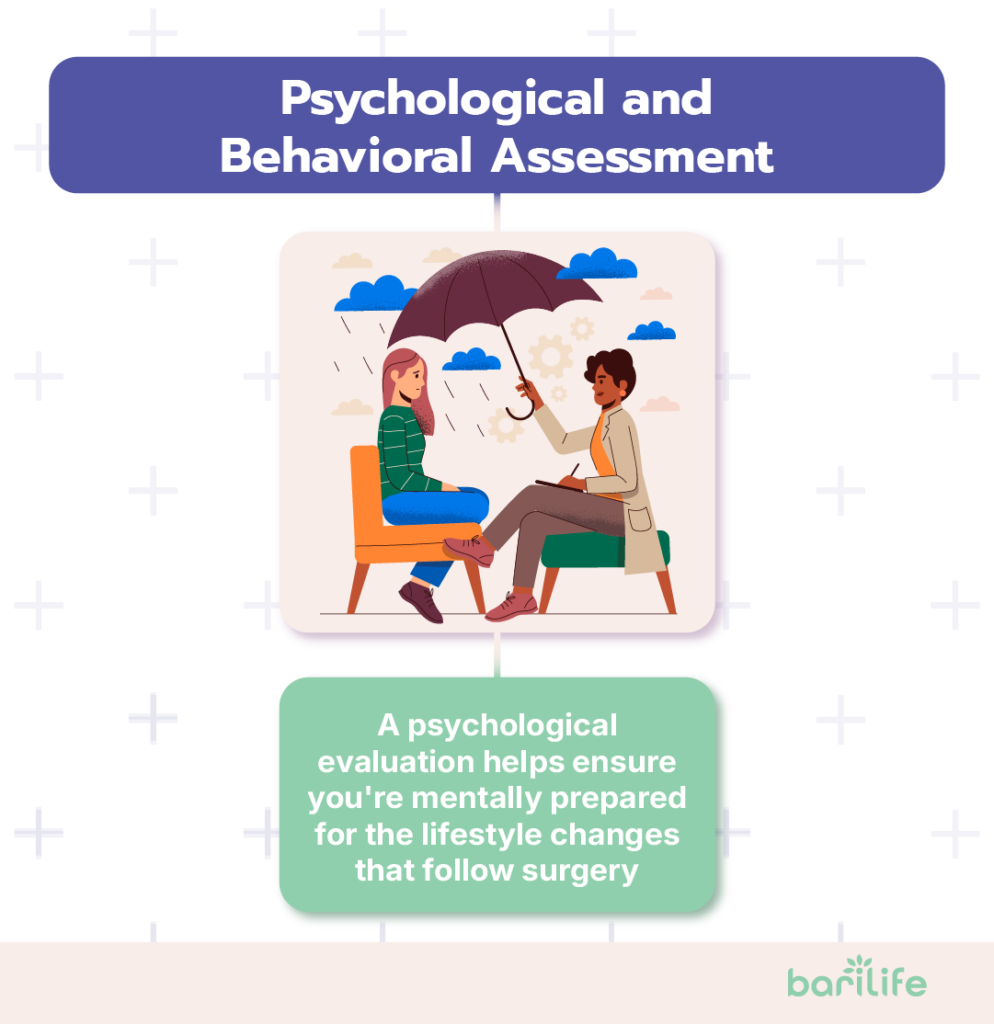Key Takeaways
- Before bariatric surgery, you’ll undergo a comprehensive series of medical, psychological, and lifestyle assessments to ensure you’re physically and mentally prepared.
- Tests often include blood work, heart and lung evaluations, gastrointestinal exams, and a psychological assessment to identify and address potential risks.
- Understanding the purpose of these tests can help reduce anxiety and empower you to take an active role in your health journey.
Bariatric surgery is a major life decision that requires thorough preparation. Before you can proceed with the operation, your medical team will need to conduct a comprehensive series of tests to ensure you’re ready both physically and mentally. These evaluations typically take place over several weeks or months leading up to your surgery date.
Understanding what tests are done before bariatric surgery can help with your worries and prepare you for what’s to come. This complete guide explores the various assessments you can expect as part of your pre-surgical workup.
Table of Contents
Comprehensive Medical Evaluation

Your bariatric surgery journey begins with a thorough medical evaluation involving multiple healthcare professionals. This team approach ensures that every part of your health is considered before proceeding with surgery.
Your surgical team will include bariatric surgeons, dietitians, psychologists, and medical doctors who specialize in bariatric medicine. During your initial consultations, they’ll work together to evaluate your overall health and determine if you’re a good candidate for weight loss surgery.
A detailed medical history is a crucial part of this evaluation. Your doctors will ask about your weight history, previous attempts at losing weight, any health conditions you have, medications you take, and family history of obesity-related diseases. Be prepared to discuss when your weight challenges began, what diets or programs you’ve tried, and any success or difficulties you’ve experienced with weight management.
The physical examination will focus on identifying obesity-related health issues that might affect your surgery or recovery. Your doctor will check your vital signs, examine your heart and lungs, and assess your abdomen and skin. They’ll also measure your height, weight, and waist circumference to calculate your body mass index (BMI) and determine the distribution of your body fat.
Laboratory Tests
Blood work is a standard part of pre-bariatric surgery testing. These tests help your medical team identify any underlying health issues and establish baseline measurements before surgery.
A baseline nutritional assessment is essential because many people with obesity have nutritional deficiencies despite consuming adequate or excess calories.
Your doctor will test your blood and see if you’re low in essential vitamins and minerals such as vitamin B12, vitamin D, iron, and folate.
Identifying and treating these deficiencies before surgery helps prevent them from worsening afterward, as bariatric procedures can affect nutrient absorption.

Your metabolic profile will include tests for blood glucose, hemoglobin A1C (a marker for diabetes), cholesterol levels, and triglycerides. These tests help evaluate your risk for heart disease and diabetes, conditions that often improve after weight loss surgery. Your doctor will also check your liver and kidney function to ensure these organs are healthy enough for surgery.
A complete blood count (CBC) will check for anemia or other blood disorders. Anemia is common in people with obesity and may need to be addressed before surgery to prevent complications during and after the procedure.
In some cases, your medical team may perform a cotinine blood test to ensure nicotine has been fully cleared from your system, especially if you’re a former smoker. Successfully passing cotinine blood test for bariatric surgery is often required, as nicotine can increase surgical risks.
Cardiovascular and Pulmonary Tests
Because carrying extra weight can put significant pressure on your heart and lungs, your surgical team will need to carefully evaluate these vital systems before approving you for bariatric surgery.
Most patients will need an electrocardiogram (ECG), which is a simple test that measures your heart’s electrical patterns. If your doctors notice any concerns or if you have existing heart-related risk factors, they might recommend additional tests.
These could include an echocardiogram (which uses ultrasound to create images of your heart) or a stress test (which monitors how your heart performs during physical activity).
Many people with obesity have sleep apnea without realizing it. Your surgical team will likely screen you for sleep apnea and may recommend a sleep study where they monitor your breathing patterns and oxygen levels overnight.
Finding and treating sleep apnea before surgery is essential because this condition can cause complications with anesthesia and make your recovery more difficult. If diagnosed, you’ll typically need to use a CPAP device before and after surgery to keep your airways open.
If you have existing heart or lung conditions, such as high blood pressure, heart disease, or asthma, your medical team will work to optimize these conditions before surgery. This might involve adjusting medications or recommending specific treatments to improve your health and reduce surgical risks.

Gastrointestinal and Endoscopic Tests
Since bariatric surgery directly involves your digestive system, a thorough evaluation of your gastrointestinal health is essential.
Many surgeons recommend an upper endoscopy (EGD) before bariatric surgery. This is when the doctor inserts a slim, bendable scope with a tiny camera down your throat while you’re sedated. This test can identify conditions like ulcers, gastritis, hiatal hernias, or H. pylori infection that might need treatment before surgery.
An abdominal ultrasound is often performed to check for gallstones, which are common in people with obesity. Some surgeons may recommend removing the gallbladder during bariatric surgery if gallstones are present, as rapid weight loss can put you at higher risk for developing gallstone-related problems.
Gastroesophageal reflux disease (GERD) assessment is particularly important before bariatric surgery. Certain procedures, like the gastric sleeve, can worsen existing GERD symptoms, while others, like gastric bypass, might improve them. Understanding if you have GERD helps your surgeon recommend the most appropriate procedure for your situation.
Your healthcare provider may also recommend a specific colonoscopy prep for bariatric patients, which is adapted to account for the unique needs and sensitivities that can arise due to weight and metabolic conditions.
Psychological and Behavioral Assessment
Bariatric surgery isn’t just a physical journey—it’s also a significant psychological and emotional one. A psychiatric evaluation for bariatric surgery helps ensure you’re mentally prepared for the lifestyle changes that follow surgery.
A mental health professional specializing in bariatric surgery will assess for conditions like depression, anxiety, eating disorders, or substance abuse issues. These conditions don’t necessarily disqualify you from having surgery, but they may need to be addressed before proceeding to improve your chances of long-term success.
The evaluation will also assess your understanding of how your life will change after surgery. You’ll discuss your willingness to follow dietary guidelines, take supplements, exercise regularly, and attend follow-up appointments. Your psychologist will help you develop strategies to overcome challenges and establish healthy habits before and after surgery.

Your support system also plays a crucial role in your weight loss journey. During your assessment, you’ll discuss who will support you after surgery and how they can help. Many programs also encourage participation in support groups, where you can connect with other patients going through similar experiences.
Other Specialized Tests (If Needed)
Depending on your specific health situation, additional specialized tests may be recommended before bariatric surgery.
Some patients may need an endocrine evaluation to check for hormonal conditions that could contribute to obesity or complicate surgery. These include:
- Hypothyroidism
- Polycystic ovary syndrome (PCOS)
- Cushing’s syndrome.
Identifying and treating these conditions can improve surgical outcomes and overall health.
If you smoke, you’ll need to quit completely before having bariatric surgery. Smoking significantly raises your risk for developing serious complications like poor wound healing, dangerous blood clots, and breathing problems during and after your procedure.
Your surgical team will likely test for nicotine use and can provide resources, medication options, and support programs to help you successfully quit smoking before your operation.
As part of your pre-op process, your doctor may also guide you through a cleanse for bariatric patients, which can support your digestive health and optimize conditions for a successful surgery.
Conclusion
Preparing for bariatric surgery involves more than just scheduling a procedure — it requires a complete evaluation of your physical and mental health. Embracing this process helps set the foundation for a safe surgery and a successful long-term outcome.
How Bari Life Can Help
Bari Life offers a range of specially formulated bariatric vitamins and supplements designed to meet your nutritional needs before and after bariatric surgery. Whether you’re looking for bariatric multivitamins, bariatric vitamins chewable, or even a liquid bariatric vitamin, Bari Life makes it easy to stay on track with your recovery and long-term health goals.
Their selection also includes essential items like bariatric calcium chews and bariatric multivitamin with iron, ensuring that you get the right nutrients in the right form. For patients concerned about post-op concerns like thinning hair, Bari Life provides targeted bariatric vitamins for hair loss to help support healthy growth.
To complement your daily vitamin regimen, Bari Life also offers a wide variety of bariatric protein shakes and bariatric protein bars, perfect for maintaining your protein intake in a convenient and tasty way. Need something to curb your cravings between meals? Try their delicious bariatric snacks—specifically designed for your dietary needs.
And because gut health is key to nutrient absorption, Bari Life includes options like bariatric probiotic supplements to support a balanced digestive system.
Check out Bari Life’s trusted selection of bariatric supplements today to support your journey toward a healthier you!



What are your tips and tricks to post-bariatric success?